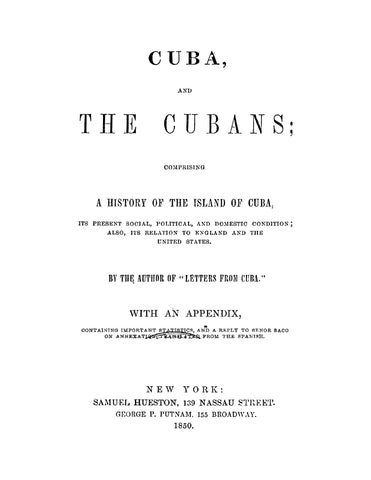
CUBA: Cuba and the Cubans, A History of the Island of Cuba, its Present Social, Political, and Domestic Condition, Also its Revelation to England and the United States
1850. 255p. by Samuel Hueston
The administration of Cuba saw significant changes with the succession of de la Torre by Don Diego Jose Navarro in 1777. Navarro focused on improving the justice system and took measures to abolish the deteriorated currency that plagued the economy, aiming to stabilize the financial situation of the island. His efforts were crucial during a tumultuous period marked by external threats and internal challenges.
During the war with England, a notable military action was the expedition from Havana that resulted in the surrender of Pensacola. This event highlighted the strategic importance of Cuba in the broader context of colonial conflicts and showcased the military capabilities of the island's forces. However, the aftermath of such military engagements often led to increased scrutiny of the local governance and military administration.
The period following the overthrow of the constitution was characterized by rising despotism, with General Tacon's administration facing criticism for its oppressive measures and lack of representation for the island's wealthy elite. The environment became increasingly hostile towards revolutionary opinions, leading to a climate of fear and repression. This shift marked a significant turning point in Cuban history, as the struggle for autonomy and justice became intertwined with the broader quest for civil rights and representation.
